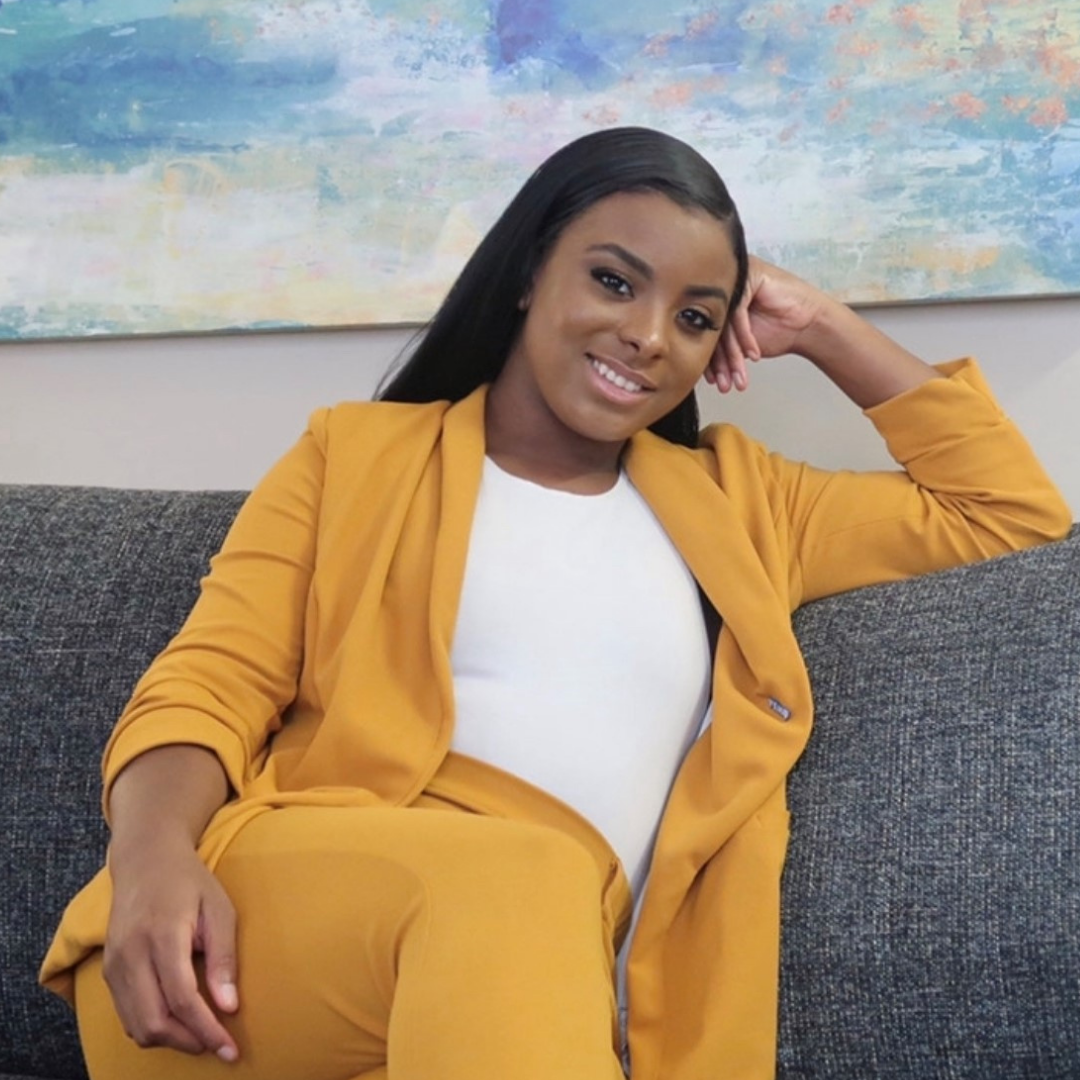
Even if a person isn’t drawn to public health, public health will find them. The deeper a person gets when digging for solutions to issues of well-being, public health rises to meet them. Through auspicious circumstances, Jasmin Washington joined this field, pursuing a Master of Public Health degree in Community Health Services at the Tulane University School of Public Health and Tropical Medicine with support from the Pincus Family Foundation Violence Prevention Scholarship.
Jasmin is originally from New Orleans and moved to Washington State after Hurricane Katrina. She received a bachelor’s in public health from Central Washington University, but that wasn’t her original intention. She had been drawn to healthcare and was working at the University’s wellness center as a peer health educator in sexual health and healthy relationships. She noticed that some of the programs had intersections. “I began connecting racism to a plethora of health issues, and that was something that wasn’t really being addressed in the programming we were doing at the time,” she said.
To fill the need, Jasmin created a program called “Power of the Talk” for members of the African American community. “A professor told my supervisor that whoever was doing this work needed to be in public health. I had a one-on-one to understand the field, and it was everything I was doing and what I wanted to do with my life,” she said. “I switched my major from psychology, and I am in love with it.”
Jasmin’s personal experience with domestic and sexual violence lead to her interest in prevention work as well as continuing to be an advocate for others like her. “Going through what I went through helped me understand BIPOC survivors who have to navigate the criminal justice system,” she said.
All of this has come together for Jasmin in the MPH and Pincus programs, which acknowledges that everyone comes from different lived experiences. “What kept coming up for me in interviews and interactions and personal life was that there are two truths - someone has committed a crime but also experienced trauma that contributed to that crime,” she said. “We have to see people as human beings. Violence prevention taught me that there are alternatives, that we can’t fight violence with more violence, and that transformative and restorative approaches can lead to healthier outcomes.”
Jasmin completed her practicum with Daughters Beyond Incarceration (DBI), which is a New Orleans area nonprofit led by two Black women who are children of incarcerated parents. “This is an amazing organization devoted to youth, putting in time and resources to make sure that we are confronting or limiting ACEs and advocating for parents who are incarcerated and youth in general,” she said.
At DBI, Jasmin worked directly with mentees and community partners, performed research, and wrote grants. A large contribution to their organization came with the development of the “Youth Policy Advocates” program, which pays young women to learn about the legislative process and develop and advocate for policies that support themselves and their parents. What Jasmin didn’t expect to gain from that process was expanded communication skills. “I came to understand how to use the language of transformative and restorative practices to communicate consequences without being punitive,” she said.
Like others, Jasmin was anxious about graduation and what might come next for her. She had applied for positions, but none of them panned out. Then, she gained valuable advice from her Pincus program advisor. “Dr. Samantha Francois told me that had nothing to do with me, that I was competing with so many other Jasmins, and that everyone is trying to pick the Jasmin that fits best in their organization,” she said. “Then, she asked me if I had ever just sat in stillness and thought about what I wanted to do. That helped to rebuild my confidence to know it wasn’t me, and that what I needed was to find the best opportunity for who I was at the moment.”
Jasmin is grateful for that advice as being still helped her find her next opportunity. She has already started her post-graduation job as a Legal Navigator for the Eastside Legal Assistance Program in Seattle, WA. She is working with survivors of domestic violence, sexual assault, and immigrants to navigate the judicial system. “I hear their stories and interpret it to help attorneys support their clients with legal matters like protection orders, child custody cases, dissolution of marriage,” she said. “Everything has brought me back to law, incarceration, and policy. The Pincus program reminded me of my purpose and DBI gave me knowledge and skills.”
Jasmin is a member of the first graduating cohort of the Pincus Family Foundation Violence Prevention Scholarship, an interdisciplinary, two-year scholarship program embedded within Tulane’s MPH program and the Violence Prevention Institute (VPI). Through unique experiential learning activities and a field practicum with a partner organization, scholars develop a specialized skill set to effectively collaborate with communities to prevent violence and promote health and well-being.
